British Labour leader Keir Starmer said Boris Johnson is the "single biggest obstacle" to the EU and Britain making progress on their post-Brexit relationship.
Speaking during a visit to Dublin, he said he was "struck" by the lack of trust in the British Prime Minister.
Mr Starmer also told RTÉ's Six One News that he did not think the UK government should introduce legislation to override the Northern Ireland Protocol.
"There is a way forward here and it's based on trust - that is in short supply with this prime minister.
"We do have a problem with [Boris Johnson] and the lack of trust."
Mr Starmer added: "I've been struck here in Dublin - I've been struck when I was last in Belfast - by the lack of trust in the UK Prime Minister and that is the single biggest obstacle to progress here."
Keir Starmer has said that British Prime Minister Boris Johnson is the "single biggest obstacle" to the EU and UK making progress on their post-Brexit relationship | https://t.co/Zv23YI2kfo pic.twitter.com/CWDNBr5dPt
— RTÉ News (@rtenews) June 9, 2022
Asked how the British Labour Party would react to legislation to disapply the Northern Ireland Protocol, he said a focus on negotiation would be a better approach.
"I don't think they should introduce legislation. I think it is quite possible with the protocol to make it work.
"Of course there are some difficulties with it. I understand that, but what's required is statecraft, negotiation, trust, hard work around the negotiating table - not legislation that would undermine [and] possibly breach international law."
Mr Starmer is this evening travelling to Belfast where he will meet political leaders in Stormont tomorrow.
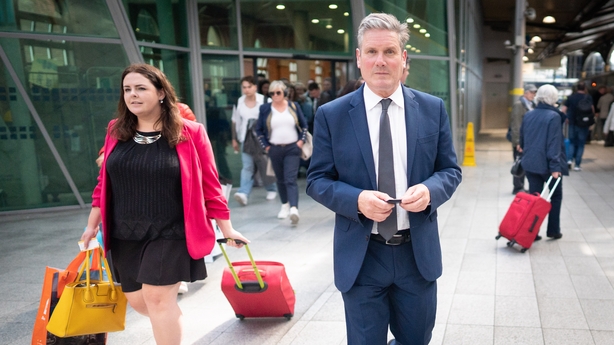
Earlier, Mr Starmer accused Mr Johnson of taking a "wrecking ball" to relationships with Ireland and the EU over the plan to unilaterally scrap aspects of the Northern Ireland Protocol.
"We've faced bigger problems than this. With good faith, statecraft and trust around the negotiating table, which is what a Labour government would bring, these problems can be overcome.
"But a Prime Minister without those attributes taking a wrecking ball to the relationship is not going to help anybody," Mr Starmer said.
UK Labour Party leader Keir Starmer has said that a focus on negotiation over the Northern Ireland Protocol would be a better approach instead of introducing legislation | https://t.co/Zv23YI2kfo pic.twitter.com/UXfQs5YRH5
— RTÉ News (@rtenews) June 9, 2022
Minister for Foreign Affairs Simon Coveney today called on the UK to enter dialogue to resolve the issues on the Northern Irish Protocol rather than taking the unilateral action of bringing in a new law to override the agreement.
UK Foreign Secretary Liz Truss last month announced plans to introduce domestic legislation that would override parts of the Brexit deal and the bill is expected to be published in the coming days.
This week, Taoiseach Micheál Martin warned that a UK government move to legislate to override parts of the protocol would represent a "historic low point" in recent Anglo-Irish relations.
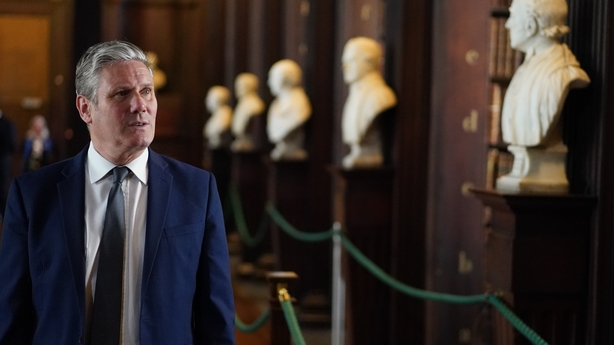
On a visit to Trinity College, Mr Starmer said: "There are challenges that need to be overcome but I start, and the Labour Party starts, with the principle that we believe in and will always uphold the Good Friday Agreement, and we believe in and will abide by international law."
He said Boris Johnson is "doing everything he can to save his own skin rather than focusing on the issue here, which is how do we get people around negotiating table, flexibility on both sides so we can overcome the remaining problems."
During his visit to Dublin, Mr Starmer also met President Michael D Higgins at Áras An Uachtaráin and visited the Guinness Storehouse.
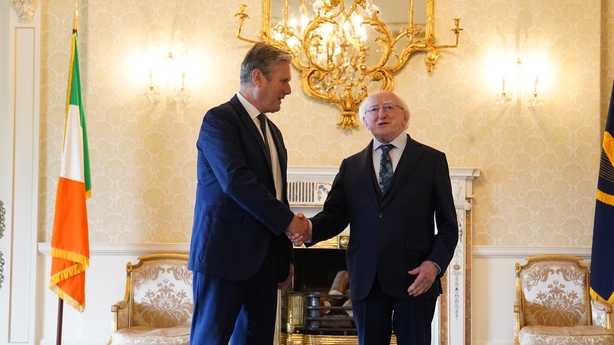
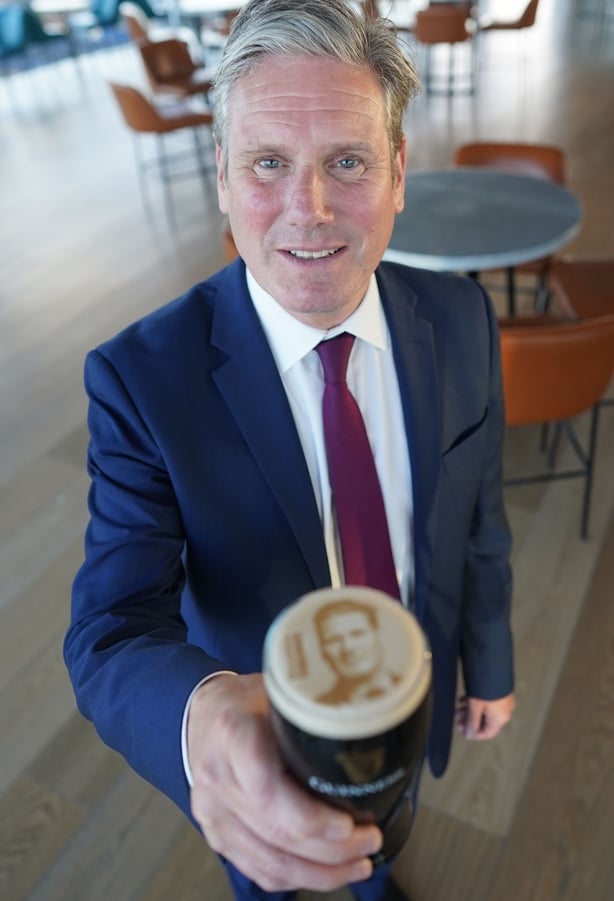
He later met the Taoiseach, Mr Coveney and Minister for Finance Paschal Donohoe, as well as Labour Party Leader Ivana Bacik.
Ms Bacik said the Irish Labour party wanted a united Ireland, but now the people of Northern Ireland deserve better than "to have their democracy, and their democratic institutions, used as a bargaining chip" by the British government.
"Openness and a generosity of spirit on all sides is needed to make a success of what emerges from this politically tumultuous period," she added.
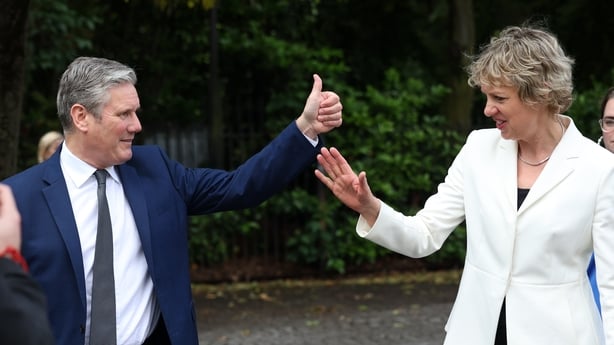
Johnson risks Tory rebellion over Protocol legislation
Boris Johnson has been warned he risks a Tory rebellion if new legislation fails to offer the "serious prospect" of restoring Stormont power-sharing and the Good Friday Agreement.
Conservative MP Bernard Jenkin said he would vote against the measures should they fail to satisfy the criteria.
The DUP has long opposed the Northern Ireland Protocol and is refusing to enter the power-sharing institutions until issues with the post-Brexit settlement for the region are addressed.
The British government has pledged to table legislation that would override parts of the protocol, which governs trade Great Britain and Northern Ireland, and the details are expected to emerge soon.
Mr Jenkin, MP for Harwich and North Essex, told the House of Commons: "I voted for the Withdrawal Agreement and the protocol against my better judgement. And so it has proved.
"If the government does not bring forward a bill which holds out the serious prospect of the restoration of power-sharing in Northern Ireland and the restoration of the Good Friday Agreement, I will vote against it."
British Foreign Office minister James Cleverly said the UK government was "confident" its position is legal.
He told MPs: "The government is confident that our actions are lawful under international law and in line with longstanding convention that we do not set out internal legal deliberations."
The minister failed to clarify which tribunal or court will be adjudicating whether the protocol legislation is within international law.
DUP MP Ian Paisley said: "The UK's proposals to remove the friction of trade between GB and Northern Ireland and Northern Ireland and GB are in keeping with international trade law.
"It is the EU, under the terms of the 2014 trade facility agreement, that is in breach of its international obligation to reduce trade friction between co-signees, of which the EU and the UK are co-signees."
He added: "The protocol is the worst example of a government or governments of Europe trying to use red tape to destroy commerce in the United Kingdom."
